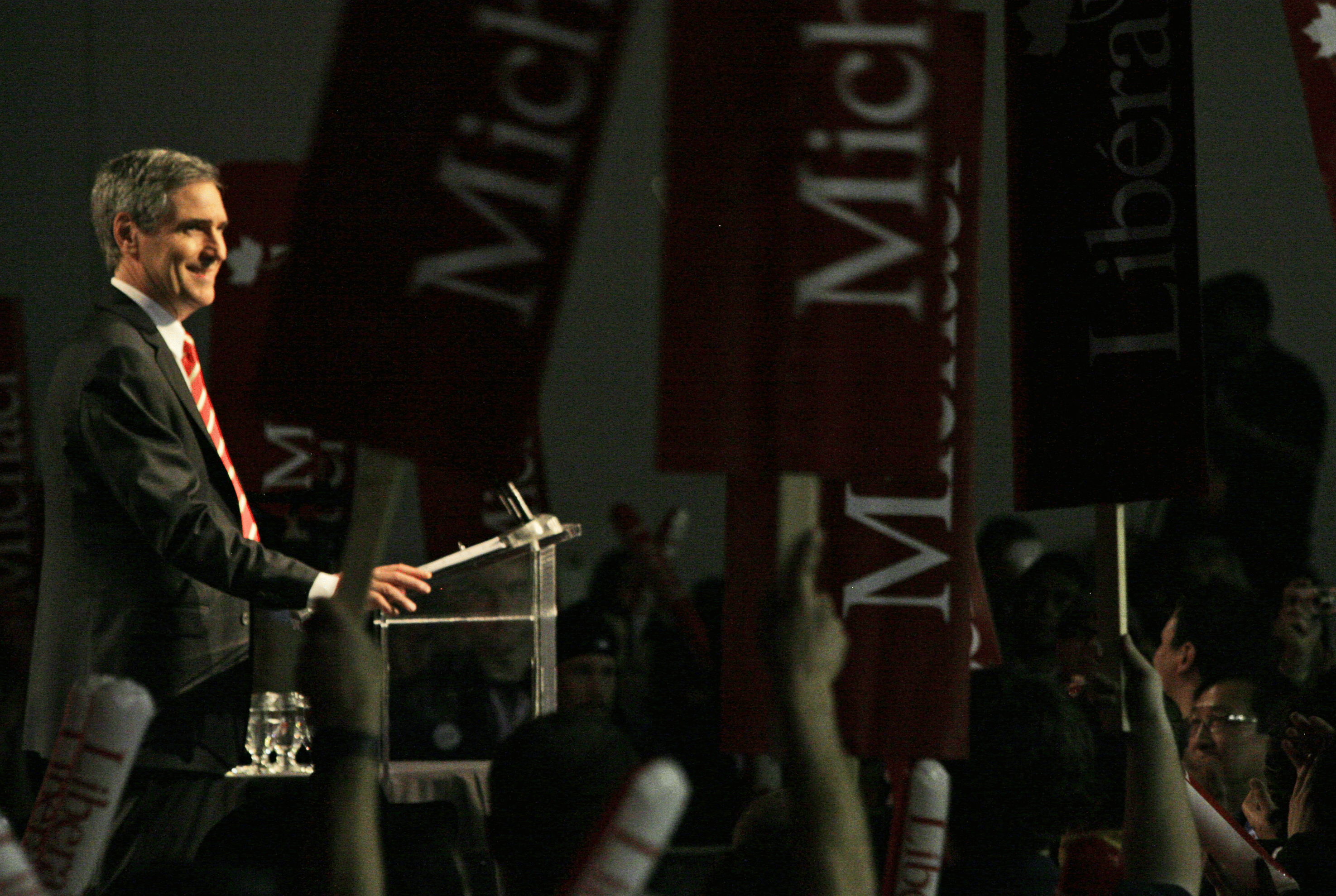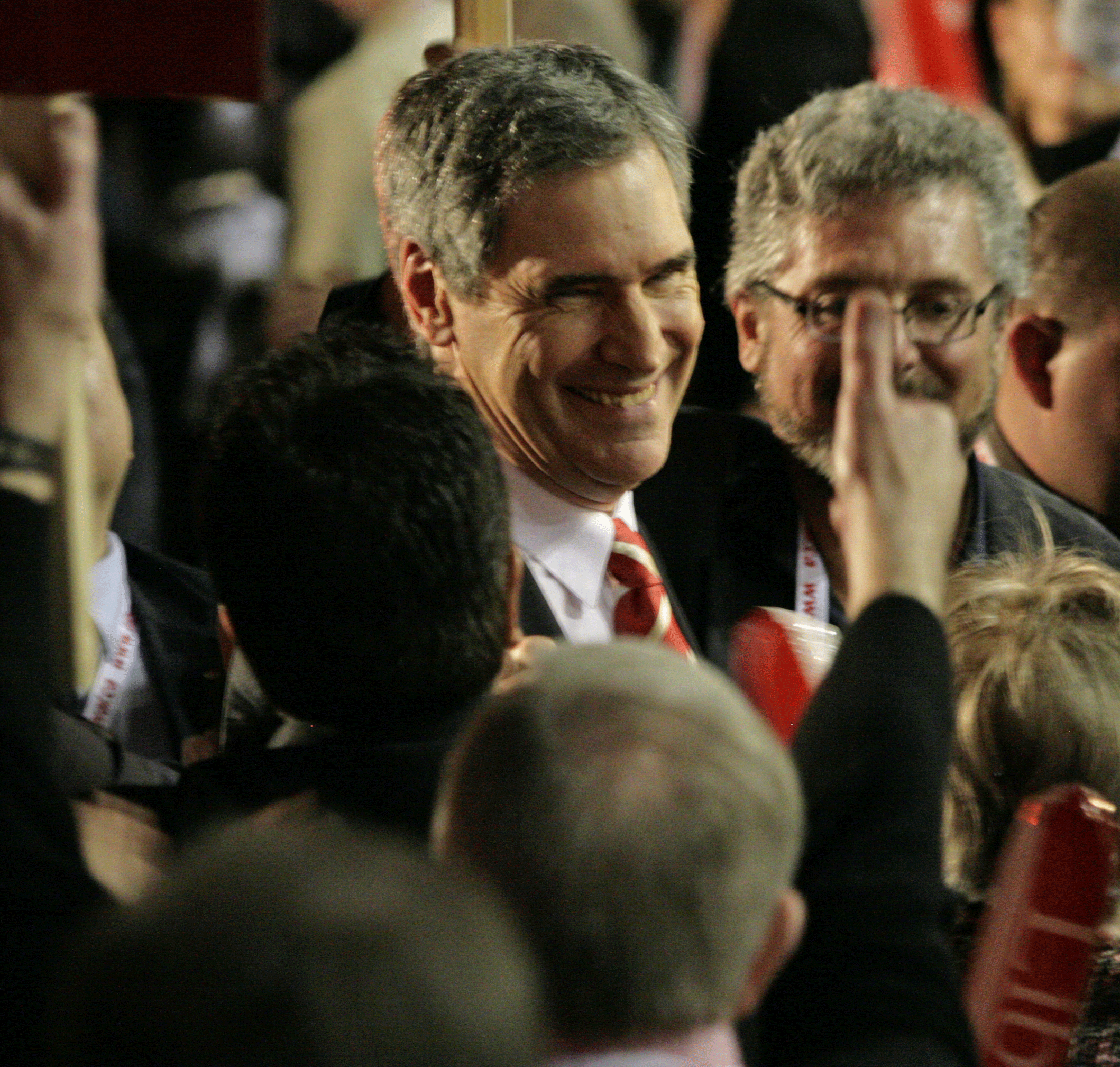Political Perspectives is produced by the students and faculty of Carleton University's School of Journalism and Communication, Canada's oldest journalism school.
2nd
JUN 2009
Car dealers
Posted by cwaddell under All, Political Strategy
Christopher Waddell
Now that the federal and Ontario government have agreed to put up $10.5 billion for an 11.7 per cent interest in General Motors, it is worth noting what the US government’s auto industry task force said about GM at the end of March this year. In its report that concluded GM was not viable without major changes, it noted:
- GM earns a disproportionate share of its profits from high-margin trucks and SUVs and is thus vulnerable to energy cost-driven shifts in consumer demand. For example, of its top 20 profit contributors in 2008, only nine were cars.
- GM is at least one generation behind Toyota on advanced, “green” powertrain development. In an attempt to leapfrog Toyota, GM has devoted significant resources to the Chevy Volt. While the Volt holds promise, it is currently projected to be much more expensive than its gasoline-fueled peers and will likely need substantial reductions in manufacturing cost in order to become commercially viable.
- Absent the successful introduction of a number of new-generation nameplates, as described in the Company’s plan, GM’s product portfolio is more vulnerable to CAFE (corporate average fuel economy) standard increases than the portfolios of many of its competitors (although GM is in compliance today with current standards). Many of its products fail to meet the minimum threshold on fuel economy and rank in the bottom quartile of fuel economy achievement.
In the end this industry is all about products and a financial rescue of GM doesn’t provide any short term solution to that problem, particularly with oil prices edging upwards again.
Media attention in recent months has focused on GM and Chrysler, but the Japanese, Koreans and Chinese are exceptional competitors and are not standing still. They already have significant advantages in terms of products as the U.S. task force has noted.
Three obvious questions emerge from this.
1st
JUN 2009
Flying to Beirut
Posted by padams under All, Media Commentary, Political Strategy
Paul Adams
I am going to be blogging this week from Lebanon, where parliamentary elections take place on Sunday. I will be there as part of an election observation team put together by the National Democratic Institute for International Affairs, better known as NDI.
When I was in Lebanon a few weeks ago as part of a preparatory mission, there were rumours circulating that some Lebanese parties were going to fly in expatriates from places like Canada to help enhance their prospects.
Since I’ve come back, I’ve talked to many Lebanese Canadians about these rumours — everyone from cab-drivers to the (many) Lebanese dads on my son’s soccer team. Everyone had heard the rumours. Some dismissed them as nonsense; many insisted they were true, but were hard-pressed when asked if they knew anyone personally who was getting a free ticket. I have met a couple of people who have told me they re-arranged summer travel plans, already underway, to make sure they made the vote, but they weren’t getting any help from anyone they said.
Now, the CBC is breaking a story that suggests that there may be some truth to the rumours.
This may seem like a preposterously expensive way to win an election, but there are a couple of reasons why it might make sense. First, the races for an estimated 85-90% of the seats in Sunday’s elections are considered to have been settled already through a process of inter-party bargaining which produces agreed-upon “slates” of candidates. Second, there is some ambiguity (I am told) about whether such subsidies would be covered by the new campaign finance laws.
Interestingly, almost all the remaining 10-15% of seats at issue are in Christian areas. Therefore it might be possible to concentrate the subsidies on people whose votes would likely make a difference. Of course, Canada’s Lebanese population is disproportionately Christian (compared with Lebanon”s).
Paul Adams teaches journalism at Carleton. He is a former Middle East correspondent for the Globe and Mail, a former director of NDI’s Palestinian program, and a frequent participant in election observation missions in Africa and the Middle East.
26th
MAY 2009
Some pension suggestions
Posted by cwaddell under All, Media Commentary, Political Strategy
Christopher Waddell
Further to Elly’s interesting post about pensions, some have been thinking about this for quite a while. Here’s what then Governor of the Bank of Canada David Dodge suggested in a speech in Montreal in November 2005 needed to be done to address some of the concerns Elly quite correctly noted are even more important issues today.
“If defined-benefit plans are to survive, grow, and provide a source of funding for long-term, riskier assets, it is important that Canadian policy-makers consider taking steps to rebalance the incentives for sponsors to operate defined-benefit plans. Let me mention a few of the things that could be done.
26th
The looming politics of pensions
Posted by ealboim under Media Commentary, Political Strategy
Elly Alboim
Fixing the Canadian pension system is now emerging as one of the urgent public policy priorities arising from the financial meltdown. It is also becoming a significant political priority because not fixing it will likely have significant electoral consequences.
When Canada’s governments came together a decade ago to ensure the sustainability of the Canada Pension Plan, the result was a triumph of political will and good public policy. The CPP has become a hybrid somewhere in between a fully funded plan and the pay-as-you-go pyramid scheme that many other countries cling to because they are unwilling to set premiums high enough to sustain future benefits.
The CPP is now sound although its maximum annual pay out still falls below $10,000.
That achievement masked an earlier failure to come to terms with the future costs of the other part of the public pension system, Old Age Security and its low income companion program, the Guaranteed Income Supplement. The OAS is clawed back progressively as income grows but the claw back doesn’t fully recover all payments until fairly high (and politically sustainable) thresholds of income. It is also indexed against inflation. Further, eligibility is based on individual income not family income the way the GIS is. That means that a low income partner in a high income family still qualifies for OAS, sometimes at the full benefit level.
19th
MAY 2009
The negative cycle
Posted by ealboim under Media Commentary, Political Strategy
Elly Alboim
The Conservatives’ attack ads have unleashed a torrent of comment that splits along a traditional divide – those who find negative advertising morally repellent (particularly in the current economic context) and those who report on it dispassionately as a political tactic.
The latter group, almost exclusively journalists and political strategists, generally says that while negative ads are offensive to most, they “work” because they tend to move opinion among target audiences. That is indisputably correct in certain circumstances and at certain times. And because they work, it is hard to imagine political strategists foregoing their use.
14th
MAY 2009
What I missed
Posted by cwaddell under All, Media Commentary, Political Strategy
Christopher Waddell
Having been out of the country for a week where news about all the important political things happening in Canada is hard to find, here are a couple of observations.
Is there so little for the House of Commons to do that a committee really spent its time investigating the employer-employee relationship between an MP and caregivers hired to work for her family, including having the caregivers testify? I had thought Parliament couldn’t be more irrelevant than a committee investigating who should be the captain of Team Canada at the world hockey championships but I guess I was wrong. I’d hold off though for a while though on those stories about more and more people don’t vote and why it is so hard to persuade good people to give up interesting careers to enter politics to help improve public policy. The answer is a little too self-evident at the moment.
With the media staggered by a collapse in advertising due to the recession, why is so much media attention being devoted to the Conservatives launching an advertising campaign against Michael Ignatieff, including all the details of the campaign and the ads? Wouldn’t it be smarter and certainly more financially rewarding to force the Conservatives to buy ads?
Finally there is a very good review by Ron Graham of Ignatieff’s book True Patriot Love in the latest Literary Review of Canada. Although he has written widely on a range of subjects, to those in politics Graham is best known as the writer of Jean Chretien’s two books, Straight from the Heart and My Years as Prime Minister.
5th
MAY 2009
The endless wheel of EI reform
Posted by ealboim under Political Strategy
Elly Alboim
What goes around comes around.
It was 14 years ago that the Liberals walked away from an ambitious Social Security Review and focused solely on reforming the unemployment insurance program. Beyond changing its name, the government moved the program along the continuum from an income support social program to a rules-based insurance program. The impetus was the substantial deficits the program had run during the recession of the ‘90s. They were driven, in part, by the crazy quilt of regulations for qualification based on weeks of work, leading to the infamous definitions of Short Weeks and Long Weeks and the absurd paper burden that was generated as employers filled out and filed Records of Employment.
Key to the reforms was the introduction of the hours-based qualification criterion which was designed to ensure that people had a strong tie to the work force before they got access to EI. It weeded out many part timers, newcomers to the work force and cut into the pattern of people working just enough to qualify for EI. The hours required varied according to regional unemployment rates and seasonal work patterns. The numbers of people qualifying drifted downwards and the EI surplus grew – in part as it was designed to do because of the automatic stabilizer EI is supposed to be during the ups and downs of the economic cycle.
As the surpluses grew, successive Liberal governments began to weaken the reforms, rolling back reform measure after reform measure largely because of pressure from its Quebec and Atlantic caucuses. But the surpluses rolled on, despite reductions in premiums, and the Conservative opposition savaged EI as a disguised tax grab. They, along with the other opposition parties, created the fiction of a “cumulative EI surplus”, knowing full well that the annual surpluses and deficits were rolled into the government’s bottom line annually. There was never a separate account – it was simply a notional accounting device.
Now, the pressure’s on again to move the dial further back towards undisguised income support. The device? Further reduce the hours of qualification and make them uniform across the country. The argument? It is fairer regionally and individually because so many people have been disenfranchised despite paying premiums. Unremarked upon is that a significant uptake on EI will further weaken the already loose tie between premiums and benefits and result in ever growing deficits despite the Conservatives earnest but meaningless efforts to have EI be a stand-alone, self financing operation.
So the Liberals who first tightened the rules because of the fiscal implications are now ready to virtually complete the roll back and turn back the clock. The Conservatives hold to the notion that it is OK to have forced premium payments with no access to benefits. They also continue to hold to the view that even at its current low levels of benefits, EI can be a disincentive to work – a view that seems to ignore current economic realities.
But mostly, they have learned – as all governments have learned before them – that EI is another one of those “third rails” of Canadian politics. There are two fundamental truths. Systemic and comprehensive reform is impossible politically and once you start changing the rules, the demands for further change are endless.
And since it is unlikely that the Conservatives will permit an election on this issue – we will enter yet another process of tinkering. The result of which will last only until the next cycle when the old imperatives reassert themselves and it all comes around again.
Elly Alboim is an associate professor in the School of Journalism and Communications and a principal in the Earnscliffe Strategy Group, specializing in strategic communications and public opinion.
2nd
MAY 2009
Ignatieff keynote pix
Posted by padams under All, Political Strategy
2nd
Death of a tradition
Posted by padams under All, Political Strategy
Paul Adams
Paul Adams is blogging the federal Liberal convention in Vancouver this weekend.
This morning, Liberals adopted a new system of direct voting by party members to choose their leaders, marking the end at the federal level of a peculiarly Canadian institution that originated with the Liberal Party.
Leadership conventions have produced some of the most dramatic moments in the political history of the past half-century. John Diefenbaker defiantly refusing to drop off the ballot at the Progressive Conservative convention of 1967 even after the party had made it clear it no longer wanted him. Pierre Elliott Trudeau winning with 51% of the vote on the fourth ballot of the highly-polarized 1968 Liberal convention. Sinclair Stevens’ dramatic march across the convention floor to secure the unlikely nomination of Joe Clark as PC leader in 1976. And of course Stéphane Dion’s stunning victory over Bob Rae and Michael Ignatieff in 2006.
Until 1919, Canadian party leaders were chosen as they usually are in Westminster-style systems by the parliamentary caucus. When Sir Wilfrid Laurier died in 1919 in the run-up to a policy convention, the party executive decided to use the event to choose his successor, who turned out to be William Lyon Mackenzie King. Over the years, most other Canadian parties adopted a variation on the Liberal model.
Superficially, Canadian leadership conventions look a lot like the conventions the American parties use to choose their presidential candidates, but they are fundamentally different in several ways.
First of all, Canadian parties use a secret ballot. That means that once they are selected, by and large delegates to Canadian leadership conventions have been autonomous. In American conventions, delegates vote in public, meaning that they are at the least in theory accountable to those who chose them, and certain exposed to political pressures from party power-brokers. In many cases, they are bound by state law or state and national party regulations that require them to vote, especially in early balloting, in specific ways.
The most famous instance of the impact of the secret ballot was the so-called “Flora effect” in the 1976, when more delegates were said to have gone into the balloting stations pledged to Flora MacDonald and wearing her buttons, than she received actual votes.
Second, the American parties, especially in the last half century, have adopted increasingly open mechanisms to choose delegates. Most Americans over 18 can participate in choosing one of the major party party candidates through a primary or caucus if they choose, as tens of millions of people did last year.
In Canada, fewer than 5% of voting-age Canadians belong to any party, though in hotly contested races, the size of a party may often double, triple or more, as new members are recruited in order to get them to vote for the various candidates. This is, of course, one reason that defenders of the system have argued for keeping it.
Third, most Canadian parties adopt a multi-ballot system in which candidates who fare poorly on the initial round of delegate voting are forced to drop off, and the race is gradually culled, often to two remaining front-runners. In the United States candidates are not forced to drop off by the rules.
This system has sometimes produced paradoxical results. Arguably, John Crosbie might have beaten both Joe Clark and Brian Mulroney if he had not been forced off the ballot by the rules in the 1983 convention.
More to the point, it seems unlikely that Stéphane Dion would have won the 2006 convention, having come into the convention with the support of just 17% of delegates, had Bob Rae not been forced off the final ballot by the rules.
In recent years, most Canadian political parties have moved to more inclusive and less expensive processes — even if they lost the opportunity for the major television coverage conventions often bring.
Adam Radwanski on the Globe and Mail’s website has given an admirably clear explanation of why the Liberals needed to abandon the system of delegated conventions to choose their leaders.
Though the Liberals debated the change at their Vancouver biennial meeting this morning, the truth is that there was an air of inevitability to the abandonment of the process they invented 90 years ago.
Too costly. Too divisive.
But it was fun to watch while it lasted.
Paul Adams, a former political correspondent for the CBC and Globe and Mail, is a member of Carleton’s journalism faculty and executive director of EKOS Research Associates. He is researching a book on the Liberal Party.
2nd
Policy Substance
Posted by padams under All, Media Commentary, Political Strategy
Paul Adams
Further to Elly Alboim’s post yesterday in which he said that the Conservatives would try to feed into the media narrative that Michael Ignatieff has not said enough about policy, at the end of last night’s interminable farewell speech by Stéphane Dion, Stephen Harper’s communication aide, Dmitri Soudas, emailed reporters commenting that Dion had delivered more policy substance in his speech than Ignatieff had done in his four months as Liberal leader.
Recent Posts:
- 04 May 2011 Twitter and elections: ta...
- 04 May 2011 The Conservative fork in ...
- 03 May 2011 Ignatieff’s pre-mat...
- 03 May 2011 Final Observations
- 30 Apr 2011 Counting up the newspaper...
- 29 Apr 2011 Seat projections…do...
- 27 Apr 2011 Royals versus politicians...
- 27 Apr 2011 Outing a Tory dirty trick...
- 26 Apr 2011 Those advance polls
- 26 Apr 2011 The trouble with Liberals...
Categories:
- All (93)
- Election 2008 (117)
- Election 2008 Campaign strategy (46)
- Election 2008 Faculty links (12)
- Election 2008 Media commentary (51)
- Election 2008 Student articles (37)
- Election 2011 (53)
- Election 2011 Campaign strategy (45)
- Election 2011 Faculty links (38)
- Election 2011 Media commentary (36)
- Election 2011 Student articles (1)
- Media Commentary (48)
- Political Strategy (50)
- Post-election (3)
- Uncategorized (1)
Archives:
- May 2011
- April 2011
- March 2011
- March 2010
- February 2010
- January 2010
- December 2009
- November 2009
- October 2009
- September 2009
- July 2009
- June 2009
- May 2009
- April 2009
- October 2008
- September 2008






 RSS Feed
RSS Feed